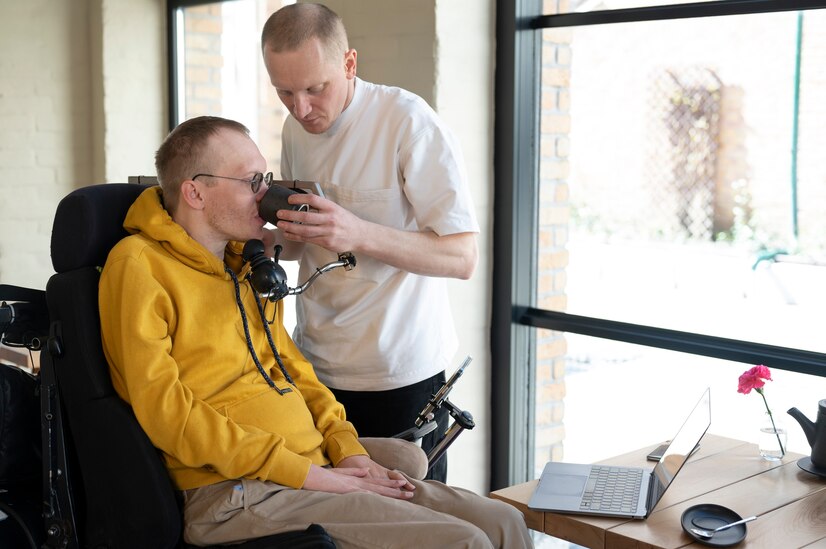The National Disability Insurance Scheme (NDIS) offers comprehensive support and funding to Australians with significant and permanent disabilities, with an aim to increase their mobility, functionality, and community participation.
Understanding which conditions are included under the NDIS and how they are classified can help individuals and their families plan and access the necessary support.
Here, we will explain the types of disabilities covered by the NDIS and provide clear information about eligibility criteria. Let’s delve into the specifics of the disabilities covered by the NDIS to help you determine whether you or someone you know may qualify for disability care services Geelong by professionals.
Overview of the NDIS Coverage
NDIS provides support to over 500,000 Australians with disabilities, disbursing more than $22 billion annually. The NDIS aims to offer tailored and comprehensive support, enhancing the independence and community participation of individuals with disabilities.
By understanding the eligibility criteria and the types of disabilities covered, you can easily access the needed support.
Criteria for NDIS Eligibility
To be eligible for NDIS support, individuals must be Australian citizens or permanent residents under the age of 65 and must live in an area where NDIS is operational.
Furthermore, they must have a permanent or significant disability that affects their ability to perform daily activities. The National Disability Insurance Agency (NDIA) evaluates applications based on these criteria, ensuring support reaches those who need it most.
Disabilities Covered by the NDIS
The NDIS covers a broad spectrum of disabilities, classified under various categories based on the nature and extent of the disability. Below is an outline of the primary types of disabilities that NDIS caters to:
A: Conditions That Will Probably Meet the Criteria
Individuals with the following conditions are likely to qualify for NDIS support:
- Intellectual disability
- Autism
- Cerebral palsy
- Genetic conditions leading to severe and permanent intellectual and physical impairments
- Lysosomal storage disorders, such as Gaucher disease or Niemann-Pick disease
- Mucopolysaccharidoses like Hurler syndrome or Sanfilippo syndrome
- Patau syndrome
- Rett syndrome
- Spinal Muscular Atrophies
- Spinal cord or brain injuries resulting in paraplegia
- Permanent blindness
- Permanent bilateral hearing loss
- Deaf-blindness
- Amputation
B: Ongoing Conditions that Need Further Assessment
Apart from disabilities, the NDIS might fund conditions that require additional evaluations. Here are the conditions:
- Neurological impairments like Parkinson’s disease or Alzheimer’s dementia
- Specific intellectual disabilities
- Speech or hearing impairments
- Chromosomal abnormalities like Down syndrome
- Physical disabilities like amputation
- A combination of these conditions
C: Defined Programs
Individuals eligible for and currently benefiting from specific Victorian schemes can now apply for the NDIS. These recipients will not need to provide additional disability documentation for NDIS. Existing Victorian schemes predating the NDIS are:
- Individual Support Package (ISP)
- Disability Support Register (DSR)
- Therapy services adhering to the Disability Act 2006 (Victoria) guidelines, particularly complex therapy sessions.
D: Permanent Disability/Early Intervention
Permanent disabilities or early interventions are situations where functional capacity may vary and needs further assessment.
For instance, children with permanent disabilities such as Down Syndrome can be eligible for NDIS, gaining access to disability services. Parents are offered support and assistance through various initiatives to aid them in the care of their children.
Each category of disability under the NDIS is assessed carefully to ensure that the supports provided are tailored to meet the individual needs of participants, ensuring they can lead an ordinary life within their communities.
Exclusions Under NDIS Coverage
Supports Not Funded by NDIS
The NDIS aims to provide support that is related specifically to a person’s disability. Therefore, it does not cover general living expenses that do not arise as a direct consequence of a disability. Key examples include:
- Day-to-day expenses such as food, rent, or utility bills.
- Services and support are typical responsibilities of other government services, such as health care and education.
- Items that might pose a risk to the participant or others, or that are likely to cause harm, such as certain medications not directly linked to treating the disability.
Understanding these exclusions is crucial for applicants to set realistic expectations about what the NDIS can provide and what they may need to source from other areas of public service or even private funding.
Out-of-Scope Services and Responsibilities of Other Agencies
The NDIS is designed to work collaboratively but distinctly with other services, ensuring there is no duplication and that all aspects of a person’s needs are appropriately met through the correct channels. Services typically not covered by NDIS include:
- Acute medical treatment and procedures are typically the responsibility of healthcare providers.
- Educational services, including formal teaching and school-based educational support should be provided by the educational sector.
- Employment services outside of disability-specific employment support, such as career advice and job placement services, which are covered by employment agencies and government employment services.
Certain specific supports fall under the jurisdiction of other government departments or community services, and distinguishing these is essential for streamlining support and avoiding overlaps.
Conclusion
NDIS is created to offer support to Australians dealing with permanent and significant disabilities. By exploring the vast array of conditions covered under the plan, it is clear that the NDIS aims to provide a comprehensive support system tailored to individual needs. While the eligibility criteria and the application process might seem daunting, getting an NDIS plan is a major step towards enhanced daily living and community integration for those eligible.
Navigating the requirements with the help of disability care services Geelong can simplify the procedure, ensuring that applications are filled appropriately and the designated supports align with the personal goals of the participants.
If you need assistance with your NDIS application, Polaris Care is here to help. For years, we have been offering a wide range of NDIS support services to help participants get the most out of their plans. Discuss your needs with our team and let us make your life better!


